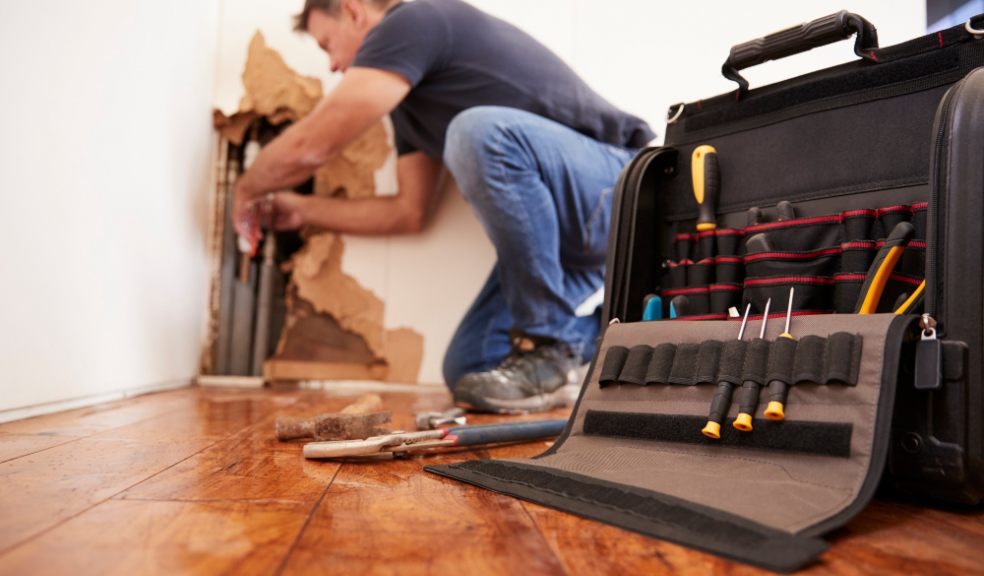
How to find trustworthy tradespeople when you need work done in your home
Under normal circumstances, there aren't many homeowners that would let strangers into their front rooms, serve them tea and biscuits, and leave them relatively unsupervised for hours, days, even weeks at a time.
The vast majority of tradespeople are honest, hardworking professionals of course, but everyone has heard a horror story about a repair job gone wrong somewhere along the line, and no one wants to leave their home to chance. So what do you need to think about?
Here's a few handy hints to help ensure you get high-calibre hires, both for your project and for your peace of mind...
Get the basics right
Word of mouth is probably your greatest weapon in the fight against questionable craftsmanship. Ask friends, neighbours and family members for local recommendations, ideally for similar jobs within a recent time-frame. Naturally your experience may differ, but the more first-hand experiences you can collate, the more informed your decision will be.
If you're short on recommendations, your local council might be able to help. Most councils have a list of approved local traders on their website, while the Trading Standards department should be able to answer any questions you might have concerning your rights, and trading obligations.
Trade organisations are also a good port of call – if your proposed job fits snugly within a single discipline. Most are self-explanatory – the Glass and Glazing Federation, for example, or the Association of Plumbing and Heating Contractors – and will have certain standards for their members. If your trader claims to be a member of a trade association, it should be easy to double check on the relevant association's website.
It might not make you popular with contractors, but the canny customer also shops around. It's worth obtaining quotes from at least three would-be hires before committing, and comparing notes to see that you're getting a fair price. Make sure you get a 'quote' rather than an 'estimate', and that you receive a copy in writing. Some contractors charge for giving quotes, so ask about that in advance.
If you're commissioning major construction work, there are a few more steps to take. Make sure you understand any permissions or approvals you might need (planning permission, conservation areas, neighbour's rights, etc), before taking on a contractor, and interview potential hires personally before proceeding.
On longer, more complex projects you will need to be in near-constant communication with your contractors, so you need to feel comfortable with them personally as well as professionally.
You may also want to check for public liability insurance, which should provide legal cover for structural damage or injury sustained on the job. If they don't have any, you might consider either looking elsewhere or getting your own.
If you have more complicated questions, or run into significant difficulties, Citizens Advice (citizensadvice.org.uk) are well-placed to offer further assistance.
Call in the cavalry
There's still an understandable anxiety around finding traders on the internet, but these days there's a whole host of commercial and not-for-profit services that can act as intermediary and quality control.
Trustmark (trustmark.org.uk) is a not-for-profit social enterprise supported by the government, and claims to have the largest database of accredited tradesman in the country. Meant to act as a seal of approval for traders of a certain standard, all listed professional undergo checks on ID, credit status, qualifications, and insurance, and have had technical skills assessed by on-site inspection. Traders can be contacted directly through the website.
Checkatrade (checkatrade.com) acts as a sort of commercial dictionary for traders, and tens of thousands of them pay a monthly fee to be listed on the site, having provided references and passed a face-to-face interview. Site searches can prioritise by location, experience, and customer reviews, while traders are given seven days to resolve complaints before the feedback goes on their profile.
Buy With Confidence (buywithconfidence.gov.uk) is a not-for-profit directory run by the Trading Standards office, in conjunction with a range of local authorities. To be listed, professionals must have been plying their trade for at least six months, and undergo an audit by a Trading Standards officer. The work itself is not inspected, but previous customers are approached for references and all trader claims are officially verified.
Ratedpeople.com (ratedpeople.com) uses similar methods, and places a particularly high premium on customer reviews. You post your job and wait for traders to respond, before looking through a shortlist and selecting a trader based on the quote and previous feedback. Traders pay a monthly fee to appear on the site, and must pass background checks and an in-person interview, which blocks roughly one in four applicants.
Of course, none of these services can guarantee you an entirely smooth project, but for the most part they do allow you to make a much more informed decision about your hire.













